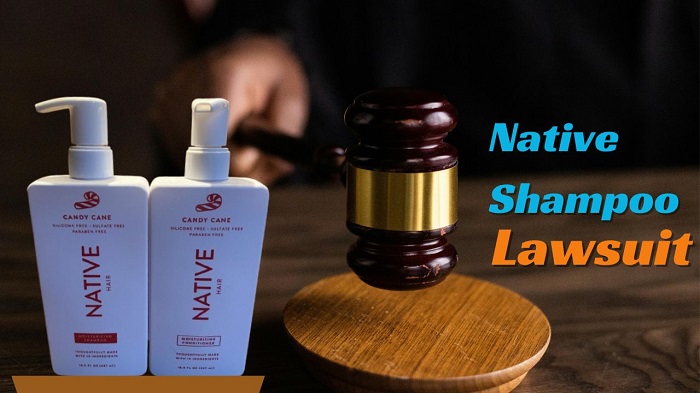Recently, the Native Shampoo Lawsuit attracted notice since the personal care brand Native is the focal point of legal action. Native is well-known for its line of natural and cruelty-free products. Currently, it’s caught up in a class action lawsuit. It alleges dangerous ingredients in the shampoo and other personal care products. This legal action emphasizes growing worries about the safety of common goods, particularly those that come into direct touch with our hair and skin. Particularly, the Native Shampoo Lawsuit says that their products contain several harmful compounds called Per- and Polyfluoroalkyl Substances (PFAS), which can cause major health hazards. Many customers have thus started to doubt the safety of their preferred hair care products and whether the brand can be responsible for the possible damage resulting from its compositions.
The lawsuit mostly revolves around the claim that Native’s products have included these harmful chemicals. Other names for these are “forever chemicals”—without consumer knowledge, since their longevity in the environment and human body indicates. The plaintiffs contend that the use of these substances in a generally used personal care product is not only unethical but also harmful. Given such grave health concerns involved, this lawsuit has spurred more discussion on ingredient openness. Specifically, in personal care and cosmetics.
What Toxic Chemicals Appear in the Lawsuit?
The Native Shampoo Lawsuit emphasizes PFAS or Per- and Polyfluoroalkylarily Substances prim, as harmful toxins. From non-stick cookware to waterproof clothes and, more recently, personal care products, including shampoos, lotions, and cosmetics, these compounds a great variety of products. Known for their resistance to water, heat, and oil, PFAS find application in many different fields. But, these exactly are the characteristics that make PFAS so hazardous. These drugs cannot break down readily, hence they might linger in the human body and the surroundings for years.
The main worry regarding PFAS is its possible accumulation in the body over time. PFAS can accumulate in organs, tissues, and even the bloodstream. Since they are not digested or eliminated quickly, thereby possibly causing a variety of major medical problems. Research has connected PFAS exposure to a higher risk of cancer, liver damage, immune system malfunction, thyroid disorders, and child development issues. This is why the presence of PFAS in common goods. Especially those meant for direct application to the hair or skin—have caused concern among consumers and medical professionals equally.
Native has not formally verified or refuted the presence of PFAS in their products. However, the lawsuit has prompted closer inspection of personal care product ingredients. Given the mounting evidence linking PFAS exposure to negative health effects. The plaintiffs in the action contend that Native’s omission of disclosing the usage of these chemicals is both reckless and detrimental.
Does Native Shampoo Cause Hair Loss?
Among the more often asked questions by customers about the Native Shampoo Lawsuit is if the product can induce hair loss. Like many personal care items, customer experiences with Native Shampoo range greatly. Some consumers say the shampoo nourishes and strengthens their hair. Others have voiced worries about hair thinning or too much shedding.
There are several causes of hair loss. Hence, it is crucial to understand that Native Shampoo has no clear, conclusive connection to any one issue. Many things can lead to hair thinning or shedding. It includes heredity, nutrition, stress, hormone imbalances, and even the use of some hair care products. Some consumers have claimed in anecdotal form that they lost their hair after using Native Shampoo. However, clinical trials and scientific studies have not supported these assertions.
Many customers of Native Shampoo report good results, which is noteworthy. For dry, brittle hair, the brand’s Strengthening Shampoo, for instance, is promoted as a solution with components like coconut oil and avocado oil proven to repair and hydrate the hair. The shampoo has drawn compliments from several consumers for leaving their hair softer, shinier, and more under control.
Like any personal care item, though, there is no one-size-fits-all answer. Products for hair care that suit some people could have negative consequences for others. For instance, some individuals might benefit from particular compounds. But, others may have allergic reactions, scalp irritation, or other problems with the same components.
See a dermatologist or other healthcare practitioner who can provide individualized guidance if you worry about scalp irritation. Do the same if you face hair loss resulting from using Native Shampoo. Although there is no proof Native Shampoo specifically causes hair loss, you should keep an eye on any changes in your hair condition and stop using the product should side effects arise.
End Note
The Native Shampoo Lawsuit has raised awareness of the possible health hazards connected with long-term usage and the existence of dangerous substances in personal care goods. Even although the lawsuit is still under progress, it emphasizes the need of more openness in the personal care and cosmetic sectors. As consumers, it is imperative to keep educated about the components in the daily items we use and to make decisions consistent with our values and health concerns. Though it’s yet unknown whether the lawsuit will lead to major changes to Native’s product development, it reminds us to give sustainability and safety a priority in the goods we consume.
FAQs
1. What is the Native Shampoo lawsuit about?
The Native Shampoo lawsuit centers around claims that the brand’s products contain PFAS, toxic chemicals linked to health problems such as cancer, liver damage, and immune system issues.
2. Can Native Shampoo cause hair loss?
There have been mixed reviews from customers regarding hair loss, but no definitive studies have linked Native Shampoo to hair thinning. Factors like genetics, diet, and stress can also contribute to hair loss.
3. What are PFAS and why are they harmful?
PFAS are a group of chemicals used in a variety of products for their resistance to heat, water, and oil. They are linked to serious health issues such as cancer, thyroid disease, and developmental problems in children.
4. What is the status of the Native Shampoo lawsuit?
The lawsuit is still in progress, and it is unclear whether the case will result in a settlement or a trial. The outcome will likely have significant implications for the personal care industry.
5. Should I stop using Native Shampoo due to the lawsuit?
If you’re concerned about PFAS or other ingredients in Native Shampoo, it may be worth consulting a dermatologist and exploring alternatives that align with your health priorities.










Leave a Reply